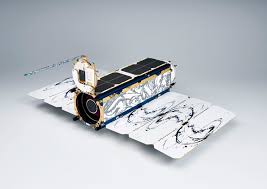
Breaking News
 Dr Pollan at Harvard has cured schizophrenia using keto diet
Dr Pollan at Harvard has cured schizophrenia using keto diet
 We are winning. Big Pharma is finding it too difficult to get new vaccines approved under Trump
We are winning. Big Pharma is finding it too difficult to get new vaccines approved under Trump
 Abortion drugs discovered in Bill Gates' vaccines
Abortion drugs discovered in Bill Gates' vaccines
 Ask yourself how we've gotten here, then ask yourself why no one seems to care.
Ask yourself how we've gotten here, then ask yourself why no one seems to care.
Top Tech News
 Drone-launching underwater drone hitches a ride on ship and sub hulls
Drone-launching underwater drone hitches a ride on ship and sub hulls
 Humanoid Robots Get "Brains" As Dual-Use Fears Mount
Humanoid Robots Get "Brains" As Dual-Use Fears Mount
 SpaceX Authorized to Increase High Speed Internet Download Speeds 5X Through 2026
SpaceX Authorized to Increase High Speed Internet Download Speeds 5X Through 2026
 Space AI is the Key to the Technological Singularity
Space AI is the Key to the Technological Singularity
 Velocitor X-1 eVTOL could be beating the traffic in just a year
Velocitor X-1 eVTOL could be beating the traffic in just a year
 Starlink smasher? China claims world's best high-powered microwave weapon
Starlink smasher? China claims world's best high-powered microwave weapon
 Wood scraps turn 'useless' desert sand into concrete
Wood scraps turn 'useless' desert sand into concrete
 Let's Do a Detailed Review of Zorin -- Is This Good for Ex-Windows Users?
Let's Do a Detailed Review of Zorin -- Is This Good for Ex-Windows Users?
 The World's First Sodium-Ion Battery EV Is A Winter Range Monster
The World's First Sodium-Ion Battery EV Is A Winter Range Monster
 China's CATL 5C Battery Breakthrough will Make Most Combustion Engine Vehicles OBSOLETE
China's CATL 5C Battery Breakthrough will Make Most Combustion Engine Vehicles OBSOLETE
88 New Satellites Will Watch Earth, All the Time, All the Places

The satellite company Planet is used to breaking records. In 2014, a rocket exploded with a payload of the company's satellites inside—26, the biggest loss ever. And today, Planet will launch the largest sat fleet ever, on a rocket carrying the most satellites in history, when it sends 88 new craft from the Satish Dhawan Space Center in Sriharikota, India.
These devices, called Doves, will flock with already-orbiting instruments to capture pictures of the Earth. They're tiny, weighing less than 11 pounds. But with their powers combined, they can track much more of the Earth than massive satellites from military-industrial juggernauts like DigitalGlobe. Even more, Planet just this month purchased another mini-sat company, Terra Bella, from Google, to amp up its space surveillance. And that means it can sell more data—data perhaps about where you live or work or play—for more money.
What kind of data, you ask? Images of farmland, for one, which can help customers measure crop yield. And if a tsunami inundates a coastline, satellite data can direct relief efforts to the right places. Retailers can take stock of parking lots to understand shopping schedules. A mining company can learn how much material is coming out of their remote site—or their competitors'. And governments can spy on whatever governments spy on.
Planet's blog post announcing their latest launch says it "will be imaging the entire Earth daily." That's not quite right: It can only image around 58 million square miles of the globe's 193 million. Earth's landmasses are right around the 58 million mark—so the truer claim is that Planet "will be imaging the entirety of Earth's earth daily."
But still—that's a lot. On the strength of its 55 currently-operating satellites, the company has already raised $183 million of capital. And with the 88 sats launching today and Terra Bella's seven more, Planet is poised to become the most powerful provider of daily Earth imagery.



